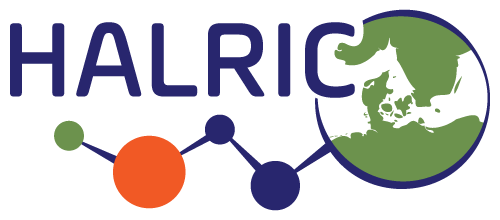Surgery is the primary cancer treatment, aiming for complete tumor resection with adequate margins of healthy tissue. Inadequate margins are a common problem during surgery, which significantly increases the risk of local recurrence and the need for additional treatments. Another dilemma during surgery is to assess whether there has been a microscopic metastatic spread of cancer cells lymph nodes near the tumor, which cannot be seen on preoperative imaging and will require the surgery to be more expansive.
Micro-computed tomography (micro-CT) shows promise for use in oral cancer. This technique, documented in studies on breast cancer, aims to bring enhanced precision to tongue tumor resections, potentially improving surgical outcomes and patient care [1-3].
To enhance surgical outcomes through better margin assessment, the pilot project will use micro-CT for tumor segmentation and assessment of surgical margins. This will include research to compare the accuracy of micro-CT with 3D ultrasound and evaluate resection margins and lymph node metastasis after surgery for head and neck cancer.
The pilot project underlines the potential of hospital-university collaborations in advancing medical technology. The proposed pilot study could lay the foundation for integrating micro-CT in hospital settings, potentially revolutionizing cancer treatment methods.
The research team will perform a synchrotron X-ray tomographic microscopy at MAX IV and 3D ultrasound scan of surgical specimens [4,5] at DTU, which surgeons at Rigshospitalet have removed from patients with oral squamous cell carcinoma (SCC). Following the scans, the smallest margin will be measured by three experienced head and neck surgeons on the 3D ultrasound images and micro-CT data. This imaging approach aims to optimize surgical precision and potentially reduce the need for follow-up treatments in the future.
For further information about this HALRIC pilot project, please contact:
Tobias Todsen
Rigshospitalet
Tobias.Todsen@regionh.dk
Fatemeh Makouei
Rigshospitalet
fatemeh.makouei@regionh.dk
References:
1. Vasigh, M., et al., The role of micro-CT for intraoperative margin assessment of breast cancer. Journal of Clinical Oncology, 2023. 41(16_suppl): p. e13620-e13620.
2. Qiu, S.-Q., et al., Micro-computed tomography (micro-CT) for intraoperative surgical margin assessment of breast cancer: A feasibility study in breast conserving surgery. European Journal of Surgical Oncology, 2018. 44(11): p. 1708-1713.
3. Tang, R., et al., Intraoperative micro-computed tomography (micro-CT): a novel method for determination of primary tumour dimensions in breast cancer specimens. The British Journal of Radiology, 2016. 89(1058): p. 20150581
4. Makouei F, et al. 3D Ultrasound versus Computed Tomography for Tumor Volume Measurement Compared to Gross Pathology-A Pilot Study on an Animal Model. J Imaging. 2022;8:329.
5. Makouei F, et al. 3D Ultrasound and MRI in Assessing Resection Margins during Tongue Cancer Surgery: A Research Protocol for a Clinical Diagnostic Accuracy Study. J Imaging. 2023;9:174.

